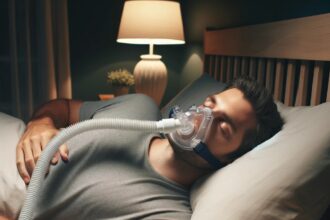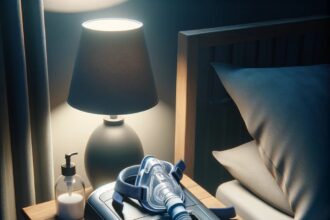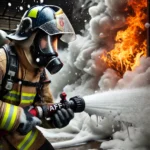Continuous Positive Airway Pressure (CPAP): A Closer Look
Continuous Positive Airway Pressure (CPAP) therapy is a common treatment for individuals suffering from obstructive sleep apnea (OSA), a condition characterized by repeated interruptions in breathing during sleep. CPAP treatment involves using machines that deliver a steady stream of air through a mask, keeping the airway open and preventing apnea episodes. This therapy can significantly improve sleep quality, reduce daytime sleepiness, and lower the risk of associated health problems such as hypertension and cardiovascular disease. However, CPAP therapy is not without its challenges and potential complications.
Patients using CPAP machines often face issues such as mask discomfort, air leaks, dry mouth, and nasal congestion. Additionally, recent recalls of certain CPAP devices due to potential health risks have raised concerns among users. Understanding these challenges and navigating the landscape of CPAP therapy is crucial for patients seeking relief from sleep apnea. At Mass Tort America, we help individuals affected by defective CPAP devices explore their legal options and pursue compensation for any harm suffered.
How CPAP Therapy Works
CPAP therapy involves using a machine that pumps air through a hose connected to a mask worn over the nose or mouth. The continuous airflow keeps the airway from collapsing during sleep, ensuring that the user breathes normally throughout the night. This process helps maintain adequate oxygen levels in the blood and prevents the frequent awakenings caused by apnea episodes. By improving sleep quality, CPAP therapy can enhance overall health and well-being.
Positive airway pressure treatment, including CPAP, is highly effective for treating obstructive sleep apnea by keeping the airway open and preventing interruptions in breathing.
The effectiveness of CPAP therapy depends on the correct fit and adjustment of the mask. There are various types of masks available, including nasal masks, full-face masks, and nasal pillow masks. Each type has its advantages and is suited to different patient needs. Proper mask fitting and regular maintenance of the CPAP machine are essential for optimal performance and comfort. Users should consult with their healthcare providers to select the appropriate mask and receive guidance on using and caring for their equipment.
While CPAP therapy is highly effective, it requires consistent use and adherence to be beneficial. Patients may need time to adjust to wearing the mask and using the machine every night. Common issues such as mask discomfort, air leaks, and dryness can usually be addressed with minor adjustments or by trying different mask types. Support from healthcare providers and CPAP suppliers is crucial in helping patients overcome these initial hurdles and achieve successful long-term therapy.
Obstructive Sleep Apnea Syndrome
In 2017, the United States pre-hospital care task force reviewed published evidence and concluded that there is no clinical utility of potential OSAS diagnostic tools. OSA syndrome, a type of sleep-disordered breathing, can arise from a recurring episode in which the airway collapses or partially collapses during sleep which results primarily from apnea or hypopnea. Criteria that define hypopnea are various.
Mixed Apnea Events
Some individuals who suffer from sleep apnea can have varying prevalences ranging from 0.6% to 20%. It is commonly diagnosed in obstructive sleep apnea patients with CPAP or Central Sleep Apnea that has subsequently been treated. CPAP therapy is often used to treat central sleep apnea, a sleep-related breathing disorder characterized by a lapse in the signals from the brain that regulate breathing, resulting in slowed or stopped breathing. The exact mechanisms causing the loss of central respiratory drive in OSA are not yet understood, however are largely linked to wrong settings in CPAP treatments and other medical problems. [61]
Risks And Recalls
Despite its benefits, CPAP therapy is not without risks. In recent years, there have been significant recalls of certain CPAP devices due to potential health hazards. For instance, some machines have been found to contain foam that can degrade over time, releasing harmful particles and chemicals that may be inhaled or ingested by users. These contaminants pose risks of respiratory issues, toxic effects, and potential carcinogenicity, leading to widespread concern and legal action.
Patients using recalled CPAP devices are advised to stop using them immediately and consult their healthcare providers for alternative treatments. Manufacturers are typically responsible for providing replacements or repairs, but the process can be lengthy and inconvenient. In the interim, affected individuals may face increased health risks due to untreated sleep apnea. Legal avenues may be available for those who suffer adverse effects from defective CPAP machines, including compensation for medical expenses, lost income, and pain and suffering.
Understanding the recall process and knowing one’s rights is essential for affected patients. Keeping informed about updates from manufacturers and regulatory agencies can help users stay safe and ensure they receive the necessary support and compensation. Legal assistance can also play a vital role in navigating the complexities of product liability claims and securing justice for those harmed by faulty medical devices.
CPAP Alternatives
For those unable to use CPAP therapy or who experience significant difficulties, alternative treatments are available. These include lifestyle changes, positional therapy, oral appliances, and surgical options. Weight loss, avoiding alcohol, and quitting smoking can reduce the severity of sleep apnea. Positional therapy involves sleeping in positions that prevent airway obstruction, such as on one’s side rather than the back.
Bilevel positive airway pressure (BiPAP) machines are another alternative to CPAP therapy, especially for individuals who do not respond well to CPAP. BiPAP provides different pressures for inhalation and exhalation, known as inspiratory positive airway pressure (IPAP) and expiratory positive airway pressure (EPAP), respectively. This can offer additional support for ventilation and may also be prescribed for individuals with obstructive sleep apnea (OSA) and another type of sleep-disordered breathing.
Oral appliances, which resemble mouth guards, can reposition the jaw and tongue to keep the airway open during sleep. These devices are typically prescribed by dentists with expertise in sleep medicine and can be a viable option for patients with mild to moderate sleep apnea. Surgery may be considered for more severe cases or when other treatments are ineffective. Procedures can range from removing excess tissue in the throat to implanting devices that stimulate airway muscles.
Each treatment option has its benefits and limitations, and the choice depends on the individual’s specific condition, preferences, and overall health. Consulting with a sleep specialist is crucial to determine the most appropriate and effective treatment plan for any sleep-related breathing disorder. Exploring these alternatives can provide relief for those struggling with CPAP therapy and improve their quality of life.
Surgical procedures and CPAP treatment are commonly used to address and treat sleep apnea.
Why Choose Mass Tort America?
Mass Tort America is dedicated to assisting individuals affected by defective CPAP devices. Our team of experienced attorneys understands the complexities of medical device litigation and is committed to securing the best possible outcomes for our clients. We offer personalized legal support, guiding you through every step of the process to ensure your rights are protected and your voice is heard.
Our nationwide reach and resources enable us to handle cases from all over the country. We provide a concierge team to help coordinate your legal and medical needs, ensuring you receive comprehensive care and representation. If you or a loved one has been harmed by a recalled CPAP device, contact us today to discuss your case and explore your legal options. Call us at 800-356-4338 or visit our contact form at https://masstortamerica.com/contact/.



















